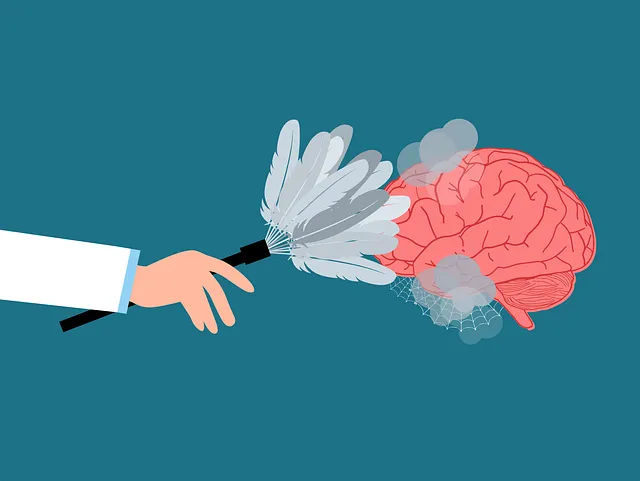Englewood Kaiser Permanente prioritizes patient safety in mental healthcare through comprehensive risk assessment, addressing immediate dangers and long-term hazards. They employ skilled professionals who tailor therapeutic approaches based on cultural sensitivities and personal histories like trauma. Their harm minimization planning includes interventions, support systems, and mental wellness journaling guidance to promote long-term mental wellness and resilience. The facility uses advanced tools for individual patient vulnerability assessment and offers personalized interventions through crisis intervention training, emotional regulation techniques, and continuous staff development. This holistic approach creates safe, supportive environments, empowering patients to actively participate in their care plans and improving outcomes.
Risk assessment and harm minimization planning are critical components of ensuring patient safety and well-being, especially in mental health care. This article explores these essential practices, focusing on real-world examples from Englewood Kaiser Permanente, a leading provider in the field. We delve into identifying potential threats and vulnerabilities through comprehensive risk assessments, highlighting the integral role they play in strategic harm minimization planning for mental health patients. By examining effective strategies employed by Englewood Kaiser Permanente, we offer valuable insights for enhancing patient care across the industry.
- Understanding Risk Assessment: Identifying Potential Threats and Vulnerabilities
- The Role of Harm Minimization Planning in Mental Health Care
- Strategies for Effective Risk Management at Englewood Kaiser Permanente
- Implementing a Comprehensive Approach to Patient Safety and Well-being
Understanding Risk Assessment: Identifying Potential Threats and Vulnerabilities

Understanding risk assessment is a cornerstone in any field, particularly in mental healthcare where the well-being of patients and practitioners alike is paramount. It involves a systematic process of identifying potential threats and vulnerabilities that could impact the delivery of care. Mental health professionals, such as those affiliated with Englewood Kaiser Permanente, must be adept at assessing risks to ensure safe and effective practice. This includes recognizing not only immediate dangers but also long-term hazards and mitigating factors within the patient’s environment.
By employing comprehensive risk assessment techniques, mental health professionals can anticipate potential challenges, whether they arise from cultural sensitivities or complex interpersonal dynamics. For instance, a patient’s history of trauma may present risks during therapy sessions, requiring practitioners to adapt their strategies with empathy and culturally sensitive approaches. Effective risk management planning, therefore, involves not just identifying threats but also developing proactive solutions that foster safe spaces for healing and growth, enhancing the overall quality of mental healthcare services.
The Role of Harm Minimization Planning in Mental Health Care

In the realm of mental healthcare, harm minimization planning is a powerful tool that goes beyond traditional risk assessment. It involves a comprehensive strategy to ensure patient safety and promote positive outcomes, especially in complex cases. At Englewood Kaiser Permanente, the mental health team recognizes the importance of this approach, which includes tailored interventions and support systems. By integrating mental wellness journaling exercise guidance into care plans, professionals empower individuals to track their emotions, identify triggers, and develop coping mechanisms – a crucial aspect of self-care and recovery.
This proactive method addresses not just immediate risks but also fosters resilience and long-term mental wellness. Moreover, it incorporates cultural sensitivity in mental healthcare practice, ensuring that treatment is personalized to each patient’s unique background and experiences. Effective harm minimization planning enhances the overall quality of care, enabling mental health professionals to deliver guidance that resonates with individuals’ needs, ultimately facilitating a smoother journey towards recovery and improved life outcomes.
Strategies for Effective Risk Management at Englewood Kaiser Permanente

Englewood Kaiser Permanente prioritizes effective risk management within its mental health services through a multi-faceted approach. The organization leverages comprehensive risk assessment tools to identify potential hazards and vulnerabilities among patients, focusing not just on clinical factors but also psychological and social contexts. This holistic evaluation enables healthcare professionals to tailor interventions precisely, ensuring the right support for each individual’s unique needs.
One of their key strategies involves implementing robust Crisis Intervention Guidance, which equips staff with specialized communication strategies to de-escalate situations and foster emotional regulation. By integrating these techniques into routine care, Englewood Kaiser Permanente aims to create a safe and supportive environment. Additionally, continuous training in Emotional Regulation aids healthcare providers in managing their own responses during high-stress scenarios, thereby enhancing their ability to offer effective support to patients facing mental health crises.
Implementing a Comprehensive Approach to Patient Safety and Well-being

Implementing a comprehensive approach to patient safety and well-being is paramount in healthcare settings, especially within mental health facilities like Englewood Kaiser Permanente. This involves adopting strategies that holistically address patient risks, encompassing both physical and psychological aspects. By integrating conflict resolution techniques and emotional regulation practices into daily operations, healthcare providers can create a supportive environment that fosters healing and minimizes potential harms.
Promoting self-care practices among patients is another key component of this approach. Encouraging individuals to actively participate in their care plan, understand their mental health number, and adopt healthy coping mechanisms empowers them to take ownership of their well-being. This proactive stance not only enhances patient satisfaction but also contributes to better outcomes, ensuring that every individual receives the comprehensive support they need for a fulfilling and secure recovery journey.
Risk assessment and harm minimization planning are paramount in ensuring patient safety and well-being, especially within specialized care settings like Englewood Kaiser Permanente’s mental health services. By identifying potential threats and vulnerabilities through comprehensive risk assessment, healthcare providers can implement targeted strategies for effective risk management. This approach not only mitigates adverse events but also fosters a culture of resilience and proactive care, ultimately enhancing the overall quality of services provided to patients, as evidenced by Englewood Kaiser Permanente’s commitment to patient safety with a dedicated mental health care number.


